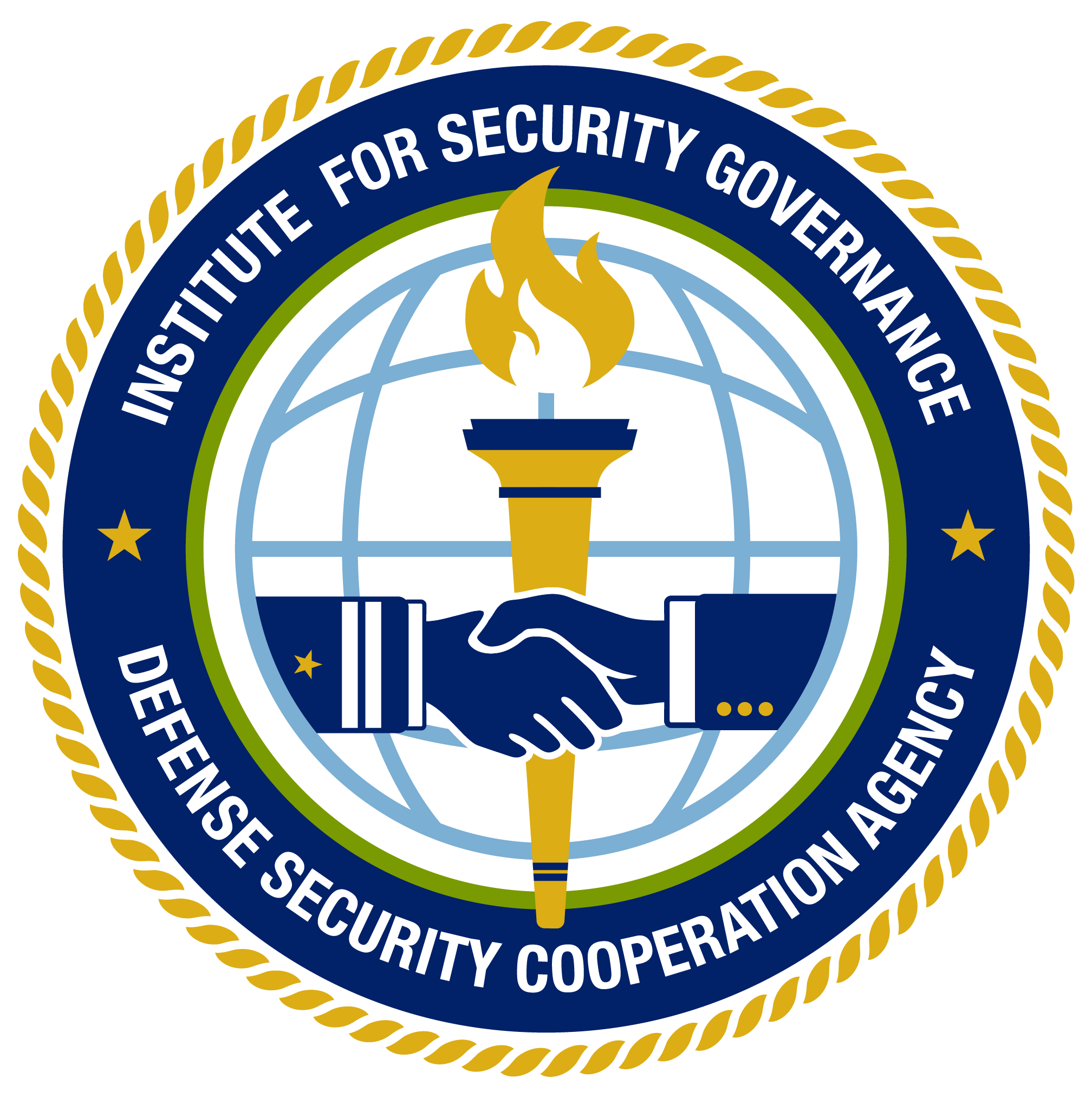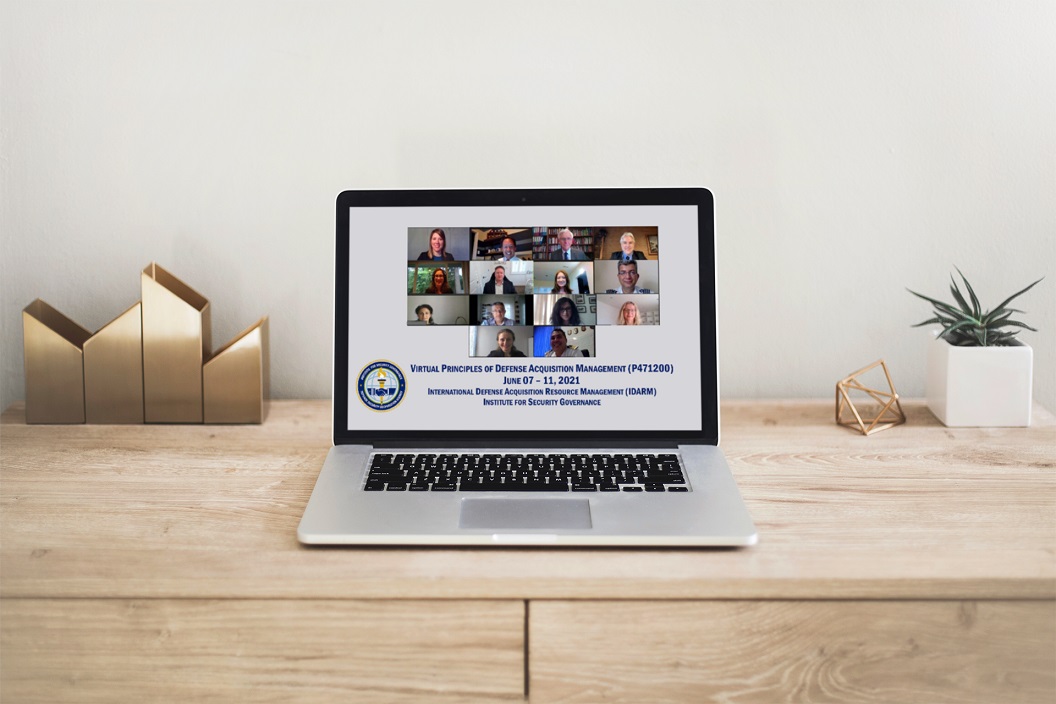ISG’S SUCCESS WITH VIRTUAL LEARNING FOR MULTILATERAL EDUCATION - Defense Security Cooperation University
ISG’S SUCCESS WITH VIRTUAL LEARNING FOR MULTILATERAL EDUCATION
Posted: Oct 4, 2021
Tyler Clark
Since early 2020, the COVID-19 pandemic has disrupted professional settings around the globe. In the interest of public health, and in compliance with pandemic-related safety measures, many institutions have been limited in their capacity to continue operations. Last year, despite these unprecedented circumstances, the Institute for Security Governance (ISG) successfully explored and implemented virtual learning to continue educational engagements with partners and allies.
To ensure the success of its new virtual curricula, ISG implemented an Alternative Education Working Group in April 2020. Led by Ms. Kathleen Peggar, the Program Manager for the International Defense Acquisition Resource Management (IDARM) Program at ISG, the working group also consisted of experts from the Institute’s Peace & Security and Education & Professional Practice divisions. The working group quickly collaborated to answer a vital question: How can ISG best adapt to this new reality and continue/enhance education delivery in a virtual environment? To respond to this question, the working group considered factors such as technology, resourcing constraints, adaptability, scalability, and how to add the best value to ISG. They also explored learning methodologies and best pedagogical practices for virtual education. Concluding their research, they created several potential courses of action. The work helped build the scaffolding for ISG’s new virtual courses.
"With the pandemic it was clear that we all needed to adjust and adapt if we were to be able to continue to engage with our allies and partners during this challenging time," expressed Ms. Peggar. One of the ways in which ISG adapted was with multilateral virtual education. Usually held in-person, either as a resident course in Monterey or in a partner nation, multilateral education is a way for ISG to engage with participants from multiple countries simultaneously with limited or no travel. Multilateral education is also valuable for participants to network across agencies and borders with others who share similar security challenges and goals. While virtual multilateral education was accompanied by some initial skepticism, the ensuing courses were carried out with admirable results.
In March 2021, the IDARM team saw achievements in their first virtual course for a multilateral audience. The "Principles of Defense Acquisition Management" course engaged partners from the Asia-Pacific region. Participants joined virtually from the Philippines, Bangladesh, Mongolia, and East Timor. Australia also sent five participants to this course – the largest representation of Australian participants to ever engage with IDARM. The virtual format of this course allowed the opportunity to engage with more allies.
IDARM’s second virtual multilateral course engaged European partners from Greece, Italy, Latvia, and Poland. All participants in this course were NATO Allies serving in key roles supporting defense acquisition decision making in their respective countries. The environment facilitated by this virtual course led to engaging and forthright discussions.
ISG conducted several multilateral virtual courses with Spanish simultaneous interpretation. These regionally focused courses included "Women in Defense and Security Decision Making," "Defense Acquisition and Contract Management," and "Building Institutional Capacity in the Maritime Security Sector." Countries represented included Argentina, Barbados, Colombia, Costa Rica, El Salvador, Grenada, Guatemala, Guyana, Honduras, Mexico, Panama, Saint Vincent and Grenadines, and Trinidad and Tobago. Speakers represented academic, military, government, and civil sectors. The core faculty were augmented by experts drawn from other parts of government, and American and international subject matter experts drawn from universities, industry, think tanks, international organizations, and non-governmental organizations. The dual language courses increased regional collaboration and communication between English and Spanish speaking partners.
While some hesitation toward virtual formats still exists for some, each virtual multilateral course has garnered positive results. Ms. Samantha Schwellenbach, virtual course director and member of the Alternate Education Working Group explained: "I think that the pandemic helped (or forced) people to be more open to working in a virtual environment. While virtual cannot replicate face-to-face engagement, there are benefits to it, and ISG intends incorporate this method into numerous projects moving forward." Ms. Peggar similarly observed: "We're proud of what we have accomplished during this period and look forward to continuing to incorporate online learning as appropriate, even as we look beyond the pandemic."
Continuing operations during the pandemic demonstrated the adaptability and ingenuity of ISG’s faculty and staff. As Ms. Schwellenbach stated: "It’s nice to have the opportunity to innovate and think creatively about how we can further engage with partners and allies.” As resident courses and in-person learning resume, ISG will no doubt continue to innovate as leaders in the field.


